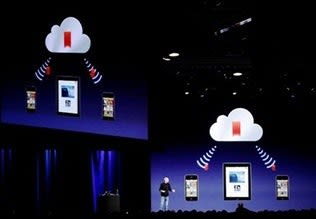A few years ago, a crashed hard drive caused my brother to lose several years' worth of photos and videos of he and his wife's young children—precious memories lost forever.
I now have young children as well, and the prospect of losing years of memories scares me. Luckily, I'm at much lower risk. I use Apple's iCloud service that backs up my photos and videos to "cloud" servers and synchronizes the data across my devices so it's instantly available anywhere. I can pull up photos from this summer's Disney cruise on my Apple TV, iPad, or iPhone effortlessly.
I've never lost a photo, and I can get to them anytime, anywhere I want. It turns out that Apple is much better at storing and securing data than my brother or I will ever be. I'm happy to outsource the management of my digital life to the experts.
The problems of data loss and data management are hardly confined to our personal lives. Over 60% of law enforcement agencies reported a catastrophic loss of digital evidence due to technical or human error in a recent survey. Even when data hasn't been lost, it can be a nightmare to find. One agency I visited stores its digital videos on DVDs in physical file folders spread across a dozen locations in a large state. That's a big haystack to search for needles.
Another agency shared that it is spending hundreds of thousands of dollars every year on fuel for officers to deliver physical disks. We no longer perform these activities in our personal lives; we've automated this drudgery through our connected smart devices.
Over the past 20 years, these smart devices have played an every larger place in our lives. Ray Kurzweil, Google's engineering director and a leading thinker on artificial intelligence, argues that we're merging technology with more and more aspects of our lives. We've already outsourced the management of our schedules, contacts, and much of our social lives to these devices.
If you don't believe me, hide your phone and computer, and then try to get through a week's worth of appointments. Or try to remember the phone numbers of the 10 people you call most often. A decade ago, this would have been easy to do. But we don't waste our brainpower on remembering phone numbers anymore, because our technology does it effortlessly. These capabilities have improved significantly in recent years largely due to better connectivity.
The rapid spread of "cloud" technology is all about connectivity—connecting people and devices to share information in a faster, more reliable, and more secure manner. Cloud-based services can reduce the cost of running servers by 67% while providing massive increases in the speed and efficiency of data sharing, according to a McKinsey Global Institute report ("Disruptive technologies: Advances that will transform life, business and the global economy"). The institute projects a $5 trillion to $7 trillion increase in global productivity due to the automation of knowledge work largely enabled through cloud infrastructure.
Finding and prosecuting threats to our communities is one of the more important examples of knowledge work in the world today. There is a growing urgency for us to leverage these technology trends within the law enforcement community.
When my brother loses masses of personal photos, it creates a sense of personal loss and sadness. When a police agency loses masses of digital evidence, it means that dangerous people may now walk free. Leveraging the cloud is no longer just an issue of convenience; it's becoming critical to the law enforcement mission.
Rick Smith is CEO of TASER International. The company's EVIDENCE.com product is cloud-based evidence management software designed to work in tandem with its AXON Flex officer worn video system. This is the second in a series of blogs discussing the cloud and its potential for revolutionizing public safety IT.












